At 5 weeks old puppies will go through what is commonly referred to as a short 'fear period' - where they may become more unsure of an object or situation that they were previously comfortable with. This has been quite noticeable with a few of Prue's puppies - some more than others.
As the puppies pass through this 'fear period' we are more cautious about triggering that startle recovery process. The puppies need only to experience very mild startles and they need to recover immediately. It is also important to continue introducing new and novel objects which we are continuing to do. We have introduced the puppies to the great outdoors. The puppies have immunity from their mother that will last until they are approximately 8 weeks old so they are relatively safe to do this. Introducing the puppies to the outdoors, the smells, the surfaces - including grass is so important to young puppies. The puppies took it all in their stride and loved running through the grass! We also took the puppies on a 'road trip' to the training barn as it hasn't been used now for over a month, and was heavily cleaned when we stopped the classes due to the Covid 19 virus. I particularly wanted to introduce the puppies to car travel, and wanted them to also experience a totally new environment. They all fell asleep in the car and then had a gallop around the barn before falling asleep again. I have attached some pictures below. We are still following the puppy culture program which emphasises the importance of communication between dogs and people, calling this the Communication Trillogy. They advocate three exercises; 1. Introducing a marker or in our case a 'clicker' 2. Teaching puppies to offer behaviour to gain a response. 3. Manding - offering a sit behaviour to ask for attention/rewards. Introducing these exercises can also support the development of impulse control, which is defined as the ability to delay gratification. Teaching the puppies to offer behaviours - teaches the puppies impulse control. For example a puppy that wants attention could obtain instant gratification by jump up to gain attention - or if it has been taught to offer a suitable behaviour like a sit for attention (Manding) then this becomes that default behaviour instead. Teaching these behaviours can also help to reduce frustration as the puppy know what to do to gain that all important attention it wants. Many people worry that teaching a 'sit' behaviour to puppies will prevent them being showdogs in the future. This is simply not true - as I can testify from my previous litter. You just need to teach a stand behaviour too and then introduce commands (cues) so that the puppy understands the difference. Its a little extra work but well worth it! We have already introduced the puppies to the clicker. Pairing the sound of the clicker with a small piece of chicken. Needless the puppies were very excited by the presence of the chicken and were not worried at all by the clicker. We have taught them all to sit via luring - they just need a bit more practise!! 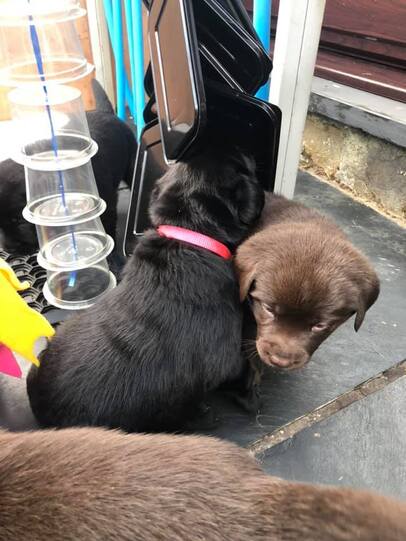 At four weeks old Prue's puppies are getting stronger on their feet and are starting to pounce at each other, and bite and shake toys - They are proper little time wasters - as all I want to do it sit in the puppy pen and watch them! They now have a bigger puppy pen so that they can stretch their legs and exercise. Physical fitness also improves mental fitness. The larger pen also reduces any conflict within the litter allowing them space to move away from each other if they want to. I've now created a toilet area with puppy pads to teach the puppies to use the puppy pads inside - however, because of the lovely weather we have introduced lots of time outside so the puppies are learning to toilet outside too. We are working on taking them out when they start to wake up after sleeping as this is a time when they all need to go! .....but this is obviously a work in progress as they are so young. A large pen with environmental enrichment has a huge impact on the puppies, however adding learning and problem solving activities can improve that enrichment affect even further Learning and enrichment activities produce puppies that are more stable, less prone to stress and less easily frightened. We have started adding new challenges to the puppies lives. The problem solving activities we have introduced are; 1. We are starting to feed the puppies away from the play pen, requiring them to navigate the slightly raised lip of the lip of the puppy pen to obtain their food. We are obviously aware that Labrador puppies have joints that are very underdeveloped so small raised platforms have also been introduced. 2. We are also introducing simple barrier activities, placing a bowl of food one side of a barrier and the puppy on the other. The puppies can get to the food easily by navigating around the barrier - but the puppies need to work this out for themselves. The difficulty of this task can easily be adapted and changed for each puppy depending on their level of independence. Puppies need to learn how to cope with frustration, and be able to think and work things out for themselves in order to cope with everyday life. These activities teach the puppies how to cope with frustration. Frustration is a huge factor in aggressive behaviour. If all puppies were taught how to cope with frustration from a young age, the incidences of aggression in our family dogs would be a lot lower. 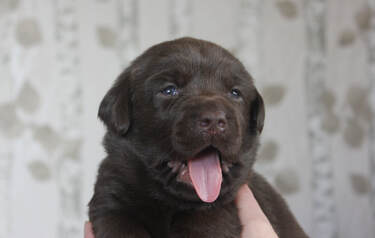 At 3 weeks old Prue's puppies are starting to solicit and extend invitations to play and they have an emotional response to new experiences and situations. Prue has begun to interact with the puppies more socially and is beginning to bond with them in a different way. The quality of the bitches interactions with the puppies has an impact on the puppies for the rest of their lives. Allowing Prue the space to move away from the puppies when she wants to is so important at this stage. Allowing Prue the space to move away when she wants allows her to spend time with her puppies but on her terms. At 3 weeks old the puppies are leaning to communicate with each other. Puppies need to learn how to communicate with other dogs if they need to cope as stable adult dogs in the future. It is quite fascinating to watch then barking, howling and growling at each other. I am also cutting the puppies nails regularly as they grow so fast. This makes feeding more comfortable for Prue and also desensitises the puppies to having their feet and nails handled in the future. This is a must for all puppies as nail cutting should be a comfortable experience for an adult dog - not something that they are frightened of. At three weeks old Prue's puppies are being introduced to a new toy or new visual object every day. Its exciting getting new toy deliveries in the post! Studies have shown that puppies raised in a stimulus rich environment with exercises and challenges, grow up to have larger brains with more neural connections than animals raised in stimulus poor environments. Puppies raised in a stimulus rich environment can actually have brains that are 5% bigger. (Puppy Culture) What does this mean?
At 3-4 weeks old we have also begun to teach 'Emotional Resilience'. A dogs ability to recover from fear is so important. Dogs that don't recover from fear quickly can lead restricted and fearful lives. Fear can affect where a dog can go and what they can cope with, dogs who show fearful behaviours can also develop aggressive behaviours. Through my behavioural work I know the impact aggression can have on people's lives and understand the importance of teaching puppies this emotional resilience. To teach emotional resilience involves triggering the startle recovery process at 3-4 weeks old. The more times a puppy is startled and recovers during this time, the more resilient they will grow up to be as adults. At 3 weeks old the puppies have virtually no fear response. At three weeks old Prue's puppies are being taken away from the other puppies individually for short amounts of time. This can help to prevent separation anxiety later in life. If being separated on a regular basis becomes normal the puppies see this as an ordinary occurrence and become habituated to that situation. Separation anxiety experienced by an adult dog can have a huge impact on a dogs quality of life and that of their owner. Prue's puppies are now three weeks old. The Critical Socialisation period is scientifically defined as being from around 3 weeks until 12 weeks of age.
During this time little time and effort is needed to produce huge emotional changes. As the puppy gets older this socialisation window closes and greater time and effort is needed to produce even small emotional change. A puppy introduced to a new person at 3 weeks old will recover quickly from the introduction and soon realise that people are safe. A 8 month old dog introduced to people or an unfamiliar person may not cope well, and will take so much longer to develop an understanding that people are safe for that dog. At over 12 weeks of age there is a change in brain chemistry that makes it so much harder for the dog to cope with new, unfamiliar noises, people, dogs etc. Socialisation is so much more than exposure to new and novel situations although this is obviously a big part of it. Dogs need to develop an understanding of social behaviour too, social behaviour around other dogs and social behaviour around people. Dogs need to become emotionally intelligent. During the socialisation period the dogs need to become familiar with 7 key things;
For more information on this see www.puppyculture.com 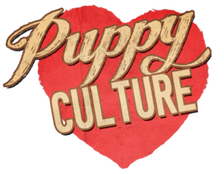 When I chose to mate Prue in January, a Global Viral Pandemic, that caused a variety of control measures to be put into place all over the world wasn't really in my plans! Being ordered to stay at home, and only travel for essential supplies has required me to think outside the box in terms of beginning these puppies socialisation. I do like a challenge.... So what's my plan? I'm going to stick to following the Puppy Culture program as I had originally planned, with a few adaptions to the exercises to make them more relevant. I believe the Puppy Culture exercises in the program to be second to none in terms of giving our pups the best start.. Through following exercises such as the Barrier Challenge, Clicker Training and the Box Game, Manding, the Scent Circle, Happy CER (Conditioned Emotional Response), Puppy Obstacle Courses, and Attention Exercises, Prue's puppies will be taught how to gain attention, how to problem solve, to be resilient, to be brave, and how to bounce back from being startled. All very important skills to have when the Social Distancing Measures are relaxed and we can start to take the puppies out and about in the world. Many people think that Socialisation is 'just' letting their puppies meet and greet lots of different people and dogs - when in reality it is much more than that. It is about teaching our puppies how to be relaxed, how to cope with modern society and also how to behave appropriately when out and about. It 'is' important that our puppies come into some form of contact with unfamiliar noises, people, animals, and other dogs, but..... there are two points to consider regarding our normal assumptions about socialisation of puppies: 1. In their seminal work on socialization, Scott and Fuller accidentally discovered that puppies just seeing a person standing passively from the shoulders up behind a fence did in fact become partially socialised to humans. So actual contact with unfamiliar humans and things may be optimal, but a lot of benefit can still be had from a puppy just observing stuff. 2. Dogs relate to their world much more through their sense of smell than any other sense. As primates, we are focused on touching, holding and caressing, particularly front to front contact. Dogs naturally prefer to pick up information via scent, and that sense of smell is astounding - being 10,000 to 100,000 more sensitive than our own noses. These two points add up to meaning that our puppies can still get lots of beneficial socialisation by seeing things and smelling them whilst they maintain at a safe social distance. With that amazing sense of smell, we can stay quite far away from other people and the puppies can "see" them with their noses very clearly. These are just some of the things I plan to do with Prue's puppies; I plan to put the puppies in my car and drive (very short distances - 100 yards up the track or so) and allow the puppies to watch the outside world from within the car. Just to add context - we live in a very rural area - my nearest neighbours are both a few fields away..... I would not be putting anyone at risk. I plan to work on recalls and creating good conditioned emotional responses (CERs) to barrier frustration, and moving objects on our own property. We have farmers on quad bikes passing our property several times a day. Other distractions could include; human household members walking on the other side of the fence, household dogs walking on the other side of the fence, motorised equipment and vehicles - we have cars and quad bikes of our own to set up exercises for the puppies. We also have very helpful neighbours... I plan to work on generalising positive responses to "unfamiliar sounds" using the Dog's Trust's Sounds Sociable, and Sounds Scary sounds tracks which are freely available on their website. These clips include children playing, household noises, traffic, animals, fireworks and thunderstorms. I plan to work on attention exercises at home using various distractions including; household members approaching, other dogs handled by household members approaching, household members touching, sound distractions,sound socialisation recordings, active training and performing learned behaviors for reward with sound in the background. I plan to offer interaction with novel surfaces and unstable surfaces - I have a huge collection of novel items to introduce to the puppies that I use in my own Puppy Training Classes at our purpose build training barn. I plan to offer visual access to a range of animals, including our 5 cats, sheep and lambs in the fields next to our property, and the chicken's that we have at the bottom of our garden. I plan to show the puppies that people can look different, by introducing different hats, wigs, different shoes, shawls, hi viz jackets etc - again things that we have at the Training Barn for our own Training Classes. Bringing items home from the training barn, that have been used or played with, by unfamiliar dogs will also increase the experiences of Prue's puppies. Prue's puppies will also enjoy playing with my other dogs and people in my own household. I'm sure I will think of other novel experiences along the way - hopefully the Social Distancing measures will be relaxed at some point soon. I have no doubt that the incredibly little social beings that I am nurturing will relish the opportunity to get out into the big wide world and cope with it with ease when the time arises xx The transitional period marks the period when puppies open their eyes for the first time and ends when they startle upon hearing sounds, they start to support their own weight, walk around, and begin to play. All puppies develop at different rates so although the transitional period is identified as days 14 - 21 this time may vary from puppy to puppy.
As soon as the puppies eyes open they start to show an interest in their litter mates. Prue's puppies have been starting to climb over and chew on one another! As they enter the socialisation period the puppies range of vocalisation increases. They start to bark and growl. They may also start to wag their tails. Their teeth begin to emerge which makes it more uncomfortable for the bitch to nurse too. At around days 16 - 17 the puppies begin eliminating on their own. Their instinct to keep the den clean is strong, and they try to move away to eliminate further away. This is why we are providing two surfaces in our whelping box, the soft warm vetbed and the puppy pads. The puppies don't have to move far to find a toilet area. The puppies are being handled daily by each of our family members, and Prue is very happy for this to take place. The puppies are being introduced to novel, tactile items, that 'feel' different - large soft toys, plush toys with crackly materials inside. The most productive enrichment at this stage involves the presentation of novel objects so you get the 'startle, recover, curiosity, exploration cycle. We are presenting objects, letting the puppies interact with them for a few minutes to a few hours and then removing them. It is during this week that the puppies will be offered milk to lap and pureed meat mixed with milk towards the end of the week. The puppies are changing so fast and it is fascinating to watch them grow. I'm loving every minute of it. They are truly amazing x
The Smart Pup training program is the only program created by an award-winning trainer and behaviourist - Jane Ardern. This groundbreaking programme is based on sound animal behavioural science and uses high quality treats and toys.
I am very happy to be able to provide our new puppy owners with their first Smart Pup Box when they take their new Puppy home. As the puppies neurological system is forming, research has shown that stressing neonatal puppies, very slightly produces benefical effects on them for the rest of their lives. This is part of the Puppy Culture Program. Puppies who have undergone early neurological stimulation have; - Greater Stress Tolerance - Greater Resistance to Disease - Faster Adrenal System - Stronger Heart Rate - Increased Heart Rate More information on Early Neurological Stimulation including the research behind the exercises, can be found here; The program utilises 5 exercises that are designed to stimulate the neurological system. the handling of each pup once per day involves the following exercises;
1. Tactile stimulation (Tickling between ties with a cotton bud) 2. Head held erect 3. Head pointed down 4. Supine position 5. Thermal stimulation These exercises involve gentle handling of the puppies, from touching their toes with a cotton wool bud to placing them on a cold surface for 5 seconds. |
Puppy Blog
This Blog follows the development stages of our puppies lives from the Prenatal Period, through the Neonatal and Transitional periods to the Critical Socialisation Period up to 12 weeks old. Archives
April 2020
Categories |
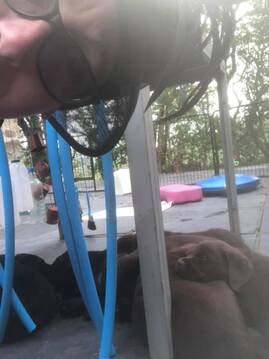
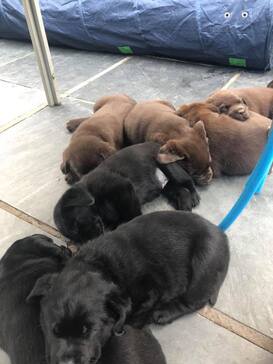
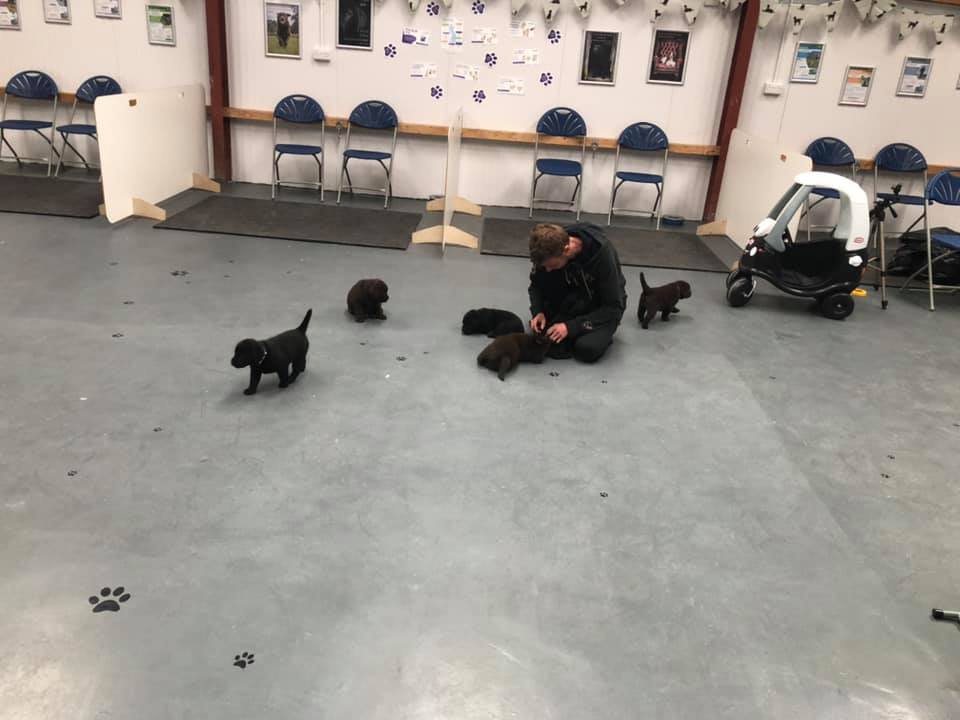
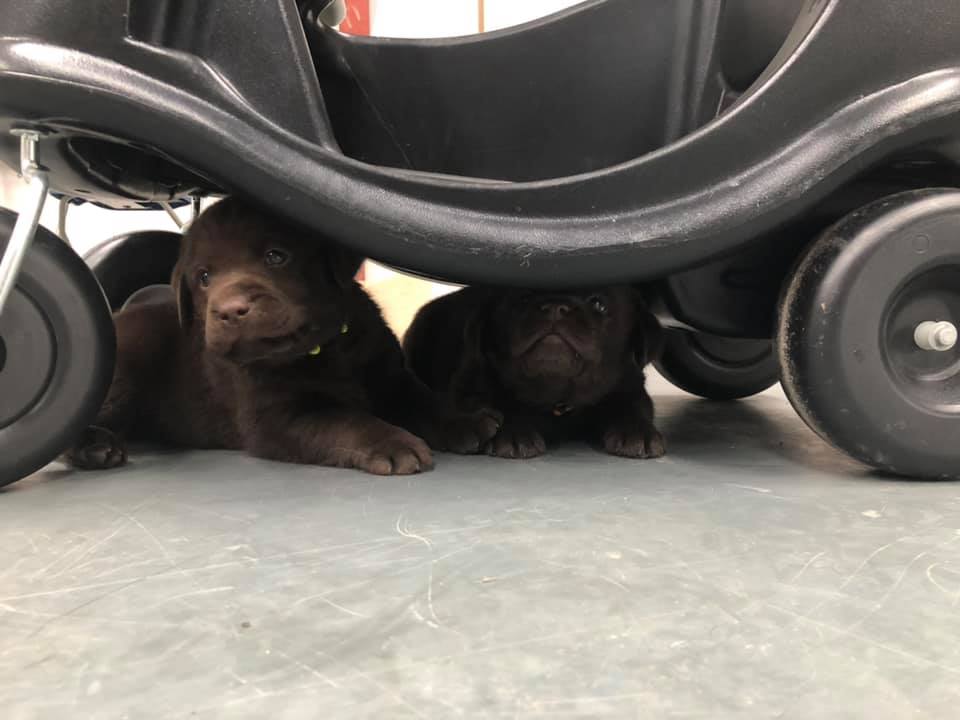
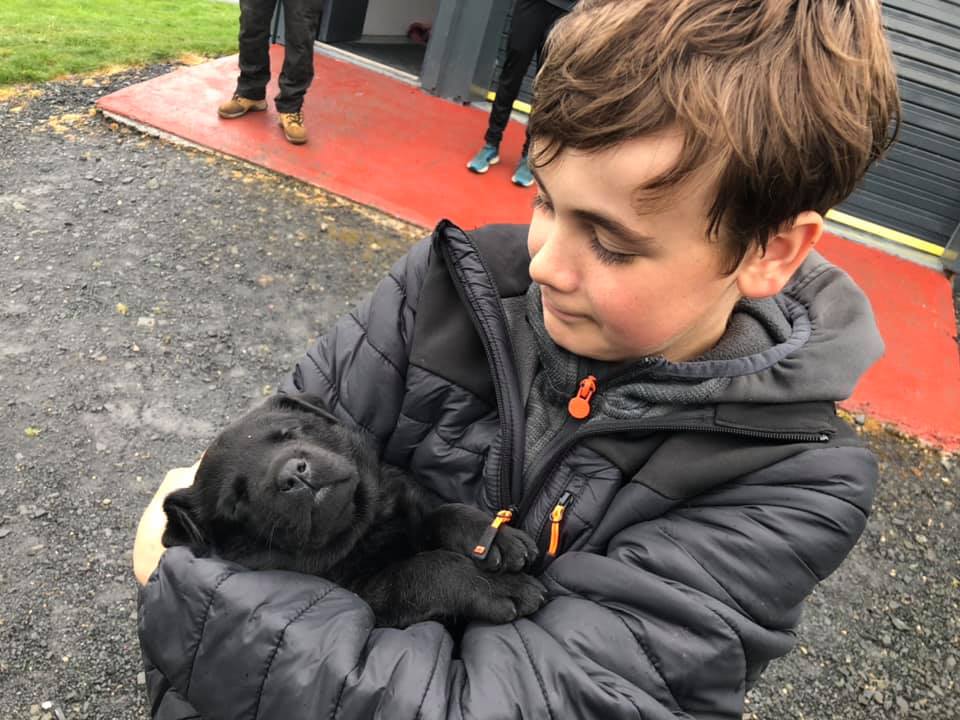
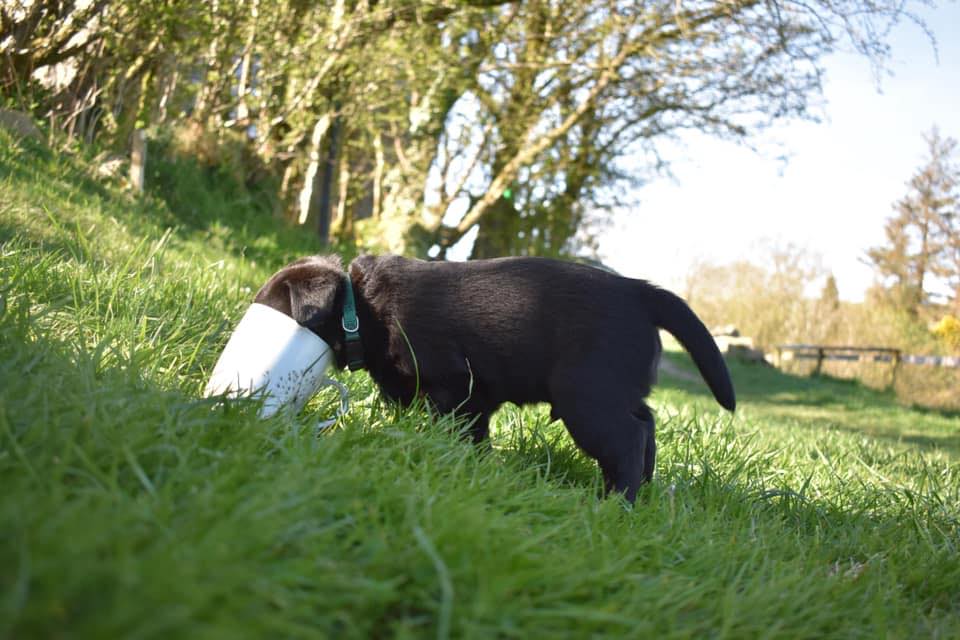
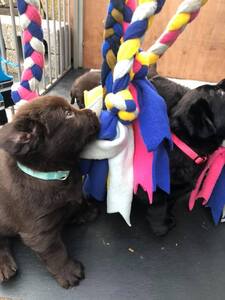
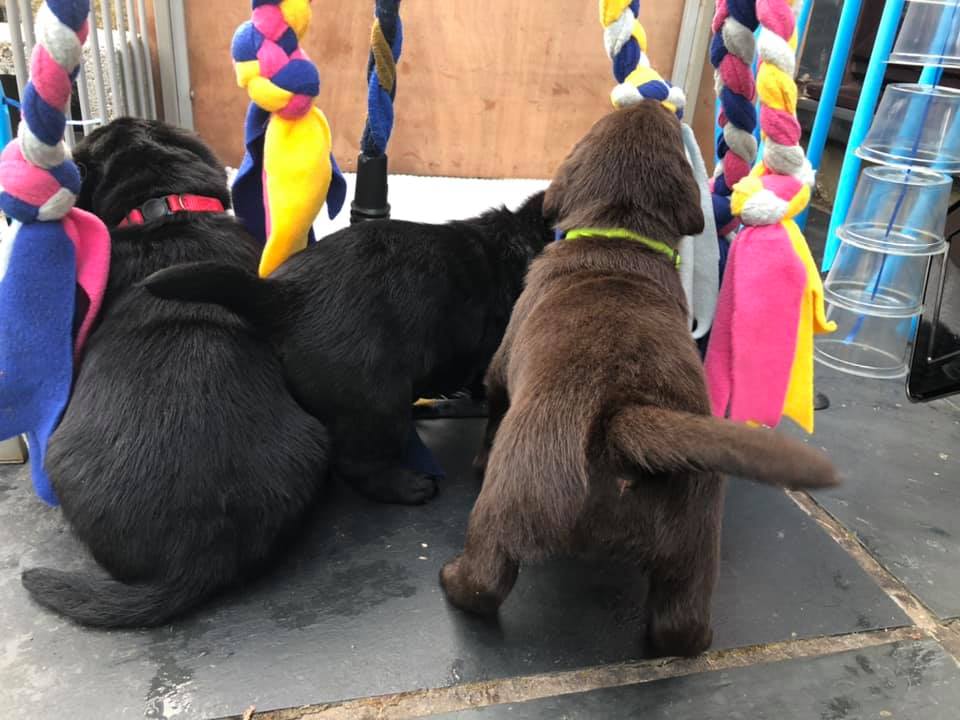
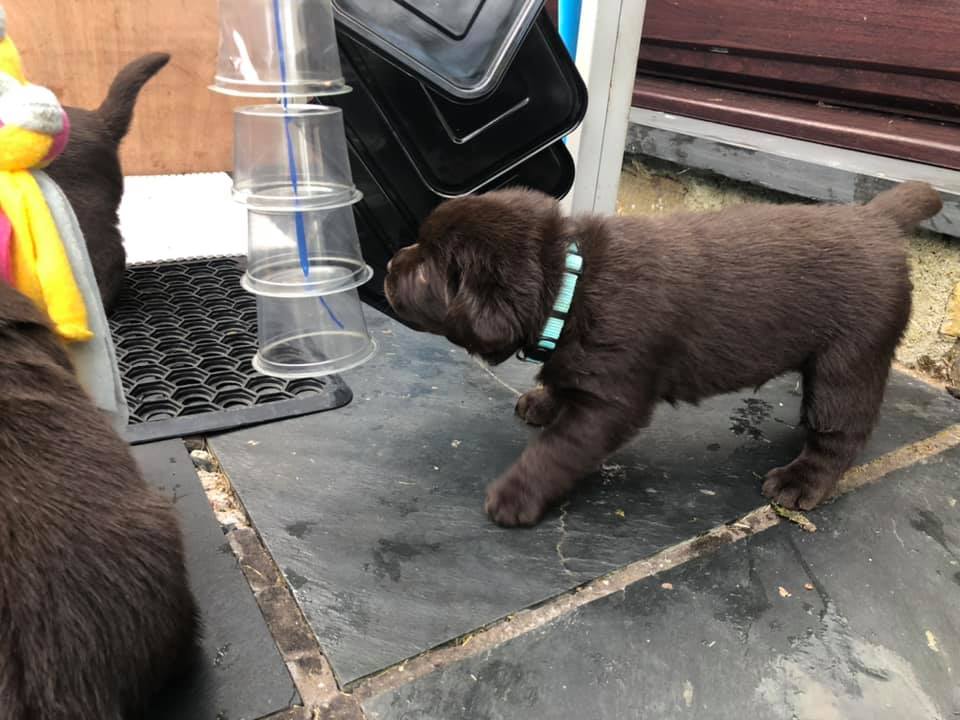
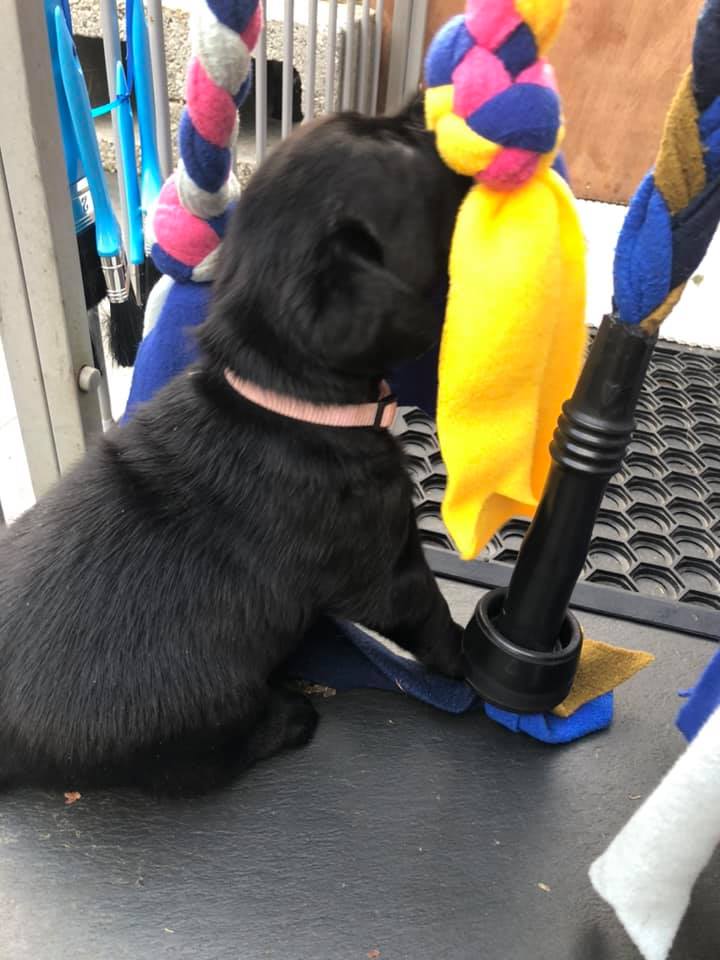
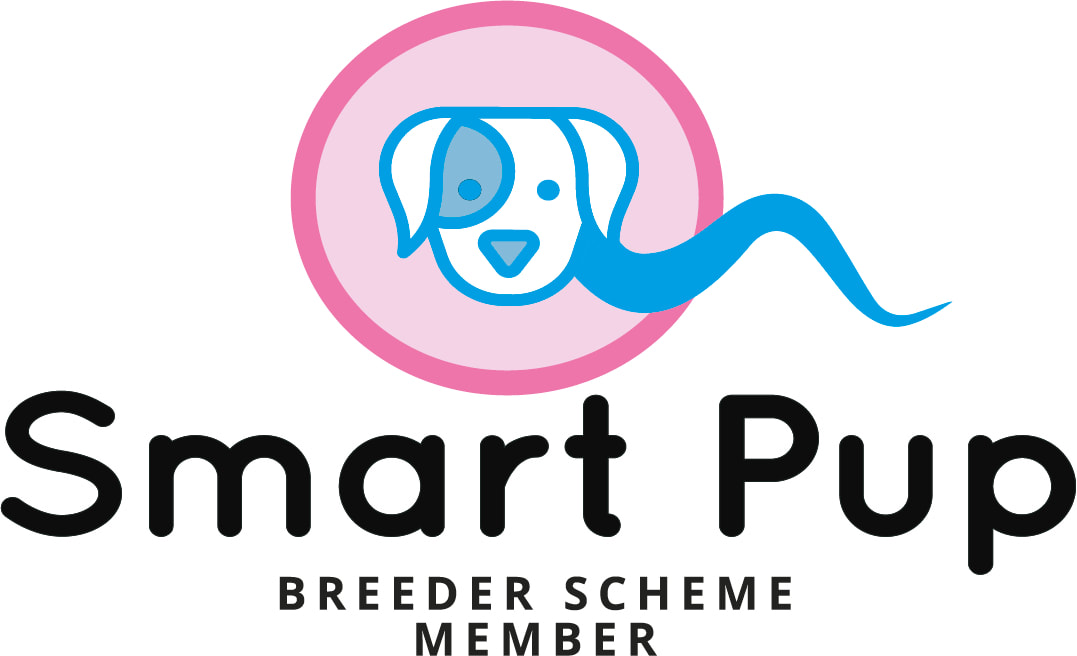
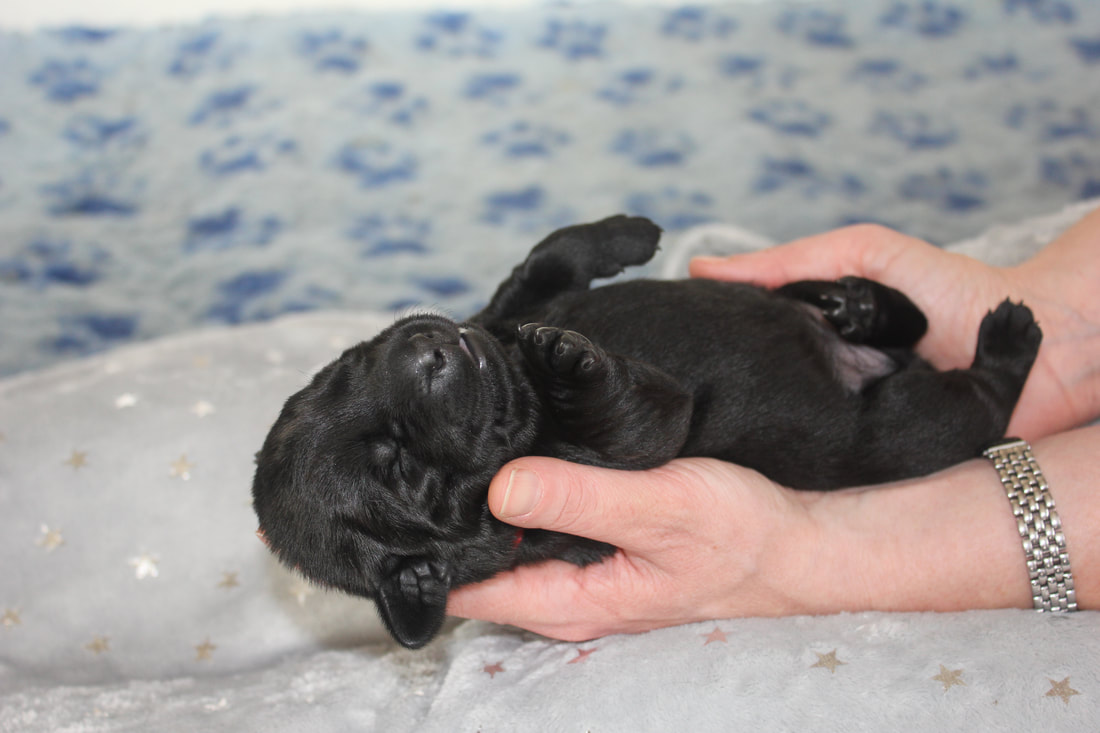
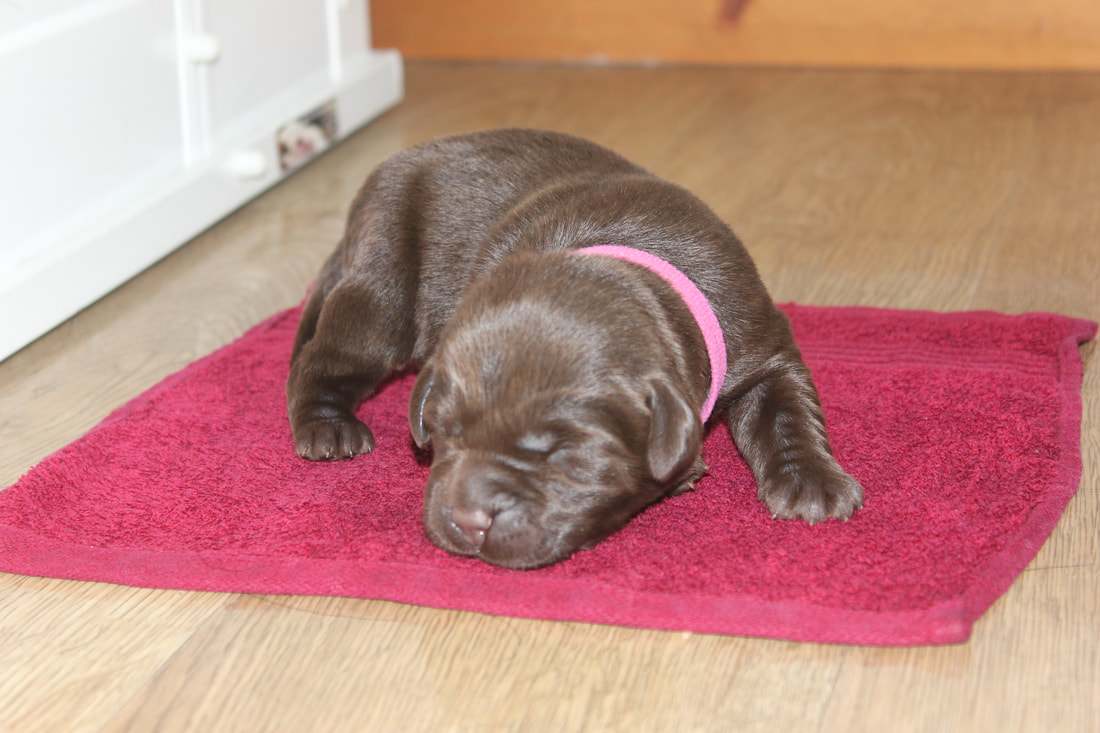
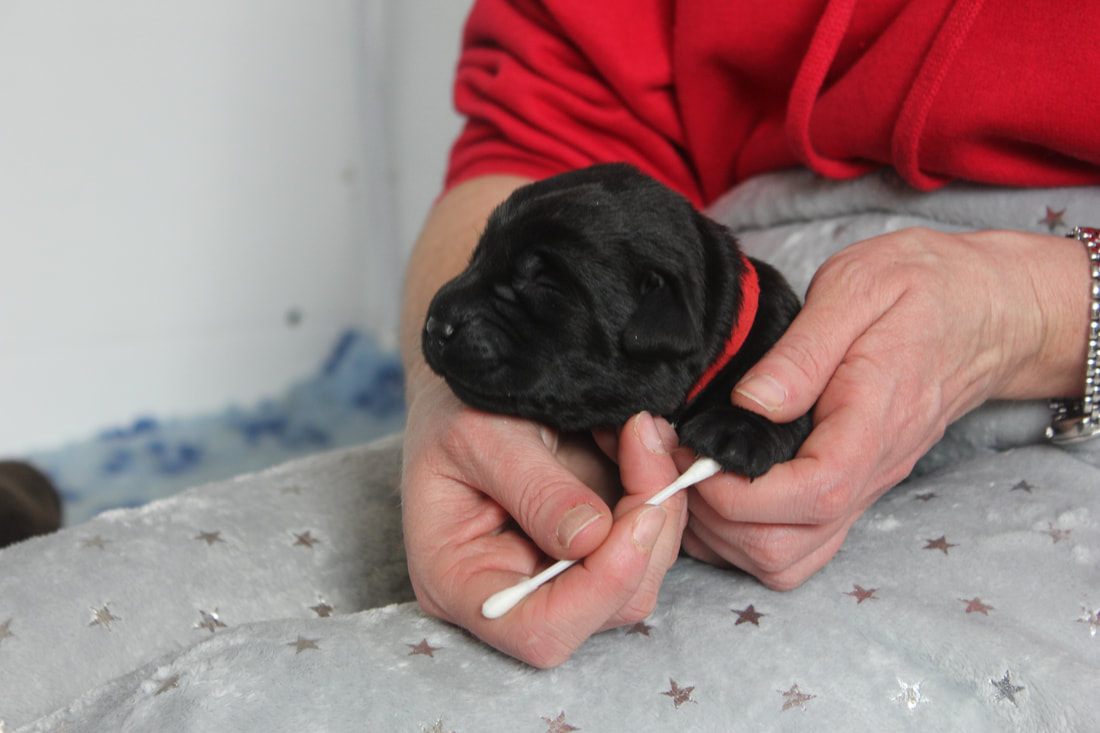
 RSS Feed
RSS Feed
